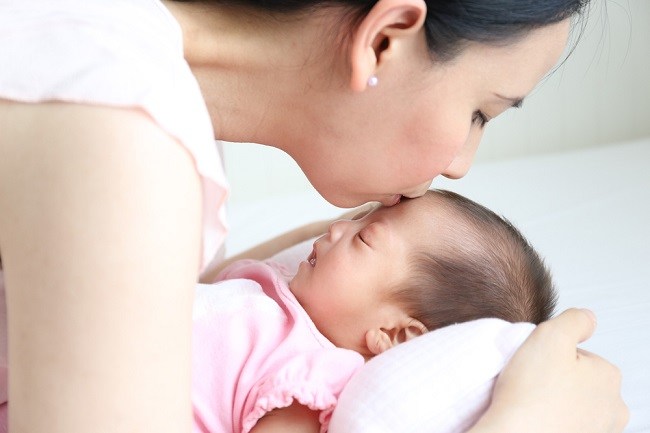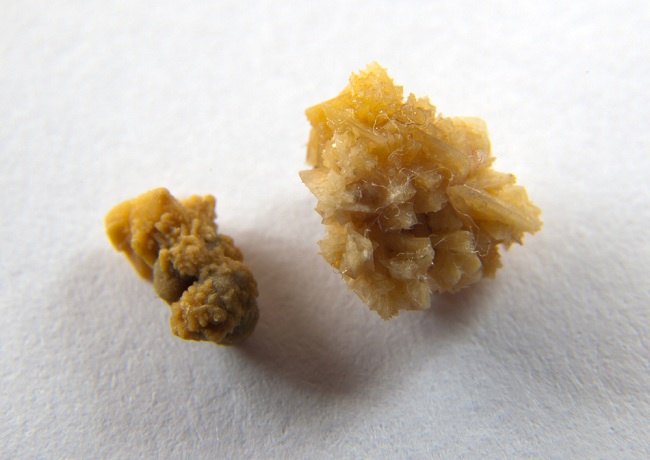Complementary foods or complementary foods for breast milk are generally given after the baby is 6 months old. Even so, there are also parents who choose to give their babies complementary foods early. now, before you decide on this, it's better to first see what the benefits and dangers are, yes.
Based on the recommendations of the World Health Organization (WHO) and the Indonesian Pediatrician Association (IDAI), 6 months of age is the most appropriate age to introduce complementary foods to infants. This is because at the age of 6 months, breastfeeding alone is not enough to meet the nutritional and energy needs of the little one.

In addition, at the age of 6 months, ideally the baby has also shown signs of being ready to eat, such as being able to sit with assistance, being able to hold his head up, the reflex to stick out his tongue is reduced, he is interested in seeing other people eat, often tries to reach for food, and reflexes to open his mouth. when given food.
Early complementary feeding and its benefits
Although the age of 6 months is the most appropriate age to introduce complementary foods, sometimes babies can also be given complementary foods earlier. Early complementary foods are usually given when the baby is 4 months old. However, remember, Bun, giving MPASI to babies under the age of 4 months is generally not recommended.
Giving MPASI early is usually recommended by doctors to increase the baby's weight which is less than normal. This condition usually occurs when your little one's weight tends not to increase or even less, only with breastfeeding or formula milk.
In addition to increasing baby's weight, a study shows that early breastfeeding and complementary foods are also beneficial for helping babies sleep longer and soundly at night. This is because the baby's stomach is filled with food before he sleeps, so he doesn't have to get up to feed every few hours.
That way, Mom and Dad can also feel calmer because they have a longer rest time.
The Dangers of Giving MPASI Early
Although in some conditions early complementary foods can bring benefits, without proper guidance and recommendations from a doctor, giving early complementary foods can actually harm the health of your little one. you know.
The following are some of the risks and dangers of giving complementary foods too early to babies:
1. Increases the risk of obesity
Several studies have shown that early complementary feeding can make babies more at risk for obesity, you know Bun.
The research states that babies who are given complementary foods early can have an increased risk of developing obesity up to 6 times at the age of 3 years, when compared to babies who are not given complementary foods too early.
2. Having indigestion
Giving MPASI early can also increase the risk of your little one experiencing digestive disorders, such as diarrhea and constipation. This can happen because the digestive tract is not really ready to process solid food.
3. Choking risk
Choking is also one of the dangers of giving MPASI too early which is important for mothers to be aware of. This is because babies who are too young may not be ready or able to swallow and support their heads properly. This risks causing them to choke when given solid food.
If you still want to give solid foods early, try to give them foods that are thinner and more fluid in texture, such as porridge or puree (softened foods).
4. Increase the risk of allergies
Giving complementary foods early is also considered to increase the baby's risk of developing food allergies, especially in babies who are at high risk for allergies, for example because they have parents or siblings with a history of allergies. However, this still needs to be investigated further.
If given in the right way and according to doctor's recommendations, the risk of allergies in babies who are given early complementary foods may be reduced.
nowHere's some information about the benefits and risks of giving early complementary foods that you need to know. If you want to give early complementary foods to your little one, you should consult a doctor first, yes, Bun.
That way, the doctor can give the best recommendations and advice regarding the provision of complementary foods according to the health condition of the little one.









